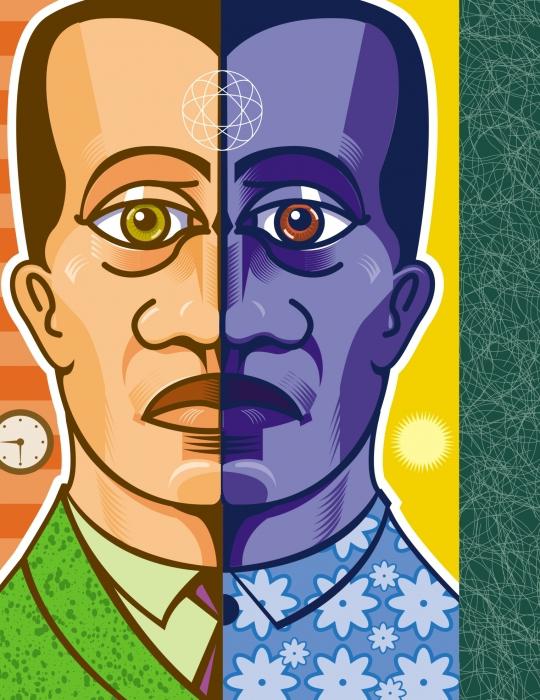In the 20th century - and now already in the 21st - the humanitarian field of knowledge increasingly puts a person - his characteristics, behavior, character - at the center of scientific research. The same thing is observed in linguistics: we are not interested in language as an abstract phenomenon, but as a manifestation of human nature, development, and achievements. In science, there is still no single concept and definition of what a "linguistic personality" is. Nevertheless, along with the “language picture of the world” - an adjacent concept - this phenomenon occupies scientists at all levels of language learning - from phonetics to textology.
In a very generalized formulation, we can say that a linguistic personality is a combination of linguistic behavior and self-expression of a person. The formation of the discourse of an individual is imprinted primarily on his native language.
And here we should recall those linguistic hypotheses (for example, the Sepir-Whorf hypothesis), according to which, it is language that determines thinking. For example, for Russian-speaking people, the concepts of definite and indefinite articles are complex , which are elementarily perceived by speakers of Germanic languages (English, Danish, German). And in comparison with Polish, in Russian there is no “female-property category”. That is, where the Pole distinguishes (say, using pronouns or the form of the verb) whether it is a group in which there were only women, children or animals, and otherwise - about a group in which at least one man was present, for a Russian there are no fundamental differences. What does this affect? The mistakes in the languages being studied, which are the result of not poor learning, but of a different linguistic consciousness, a different linguistic personality.
Even speaking our native language, we communicate in different ways, say, among peers, with teachers, in forums. That is, depending on the sphere of communication, we use different qualities of our personality - what our linguistic personality is, choosing vocabulary, sentence design, style. Its formation is influenced not only by the native language as such, but also by the educational environment, the level of education, and the field of specialization.

It is worth paying attention to the fact that the linguistic identity of the doctor, for example, will differ from the linguistic identity of the programmer or agricultural worker. Doctors will often use medical terminology even in ordinary speech, their associations and comparisons will more often be associated with the human body. Whereas in the speech of engineers metaphors are more often observed associated with mechanisms and machines. Thus, the structure of a linguistic personality depends on many factors. The environment in which we were brought up creates the foundation, however, just like our character and personal characteristics, this structure is in constant development and the environment of our living also influences it. Pay attention to how, getting into another family - say, getting married - a girl begins to speak a little differently, using sayings or "sayings" adopted in her husband's family. The situation is even more interesting if the linguistic personality continues to develop in a foreign language environment. Thus, the speech of emigrants is distinguished by a number of features, it is imprinted on that language in which they have to communicate daily.

In the theory and practice of linguistics, the linguistic personality of the translator occupies a special place. The fact is that the translator is not only a carrier of a certain culture, but also a mediator - a mediator - a transmitter of the phenomena of one culture to another. Its task is not only to transmit information, but also, often, to recreate the same force of emotional influence on the reader, to transmit the same spectrum of feelings and associations that the original language evokes. And it turns out that an absolutely “objective” transfer is impossible in practice, because in everything - from those places that remained incomprehensible or misunderstood, and ending with the choice of phraseology and metaphors - the linguistic personality of the author of the translation affects. This can be especially clearly traced by the example of translations of the same poem by different translators. Even within the same time period (for example, Petrarch translations, which were performed by poets of the Silver Age), the style, the imaginative system, and, ultimately, the overall effect of the same poem in different translations will differ radically.